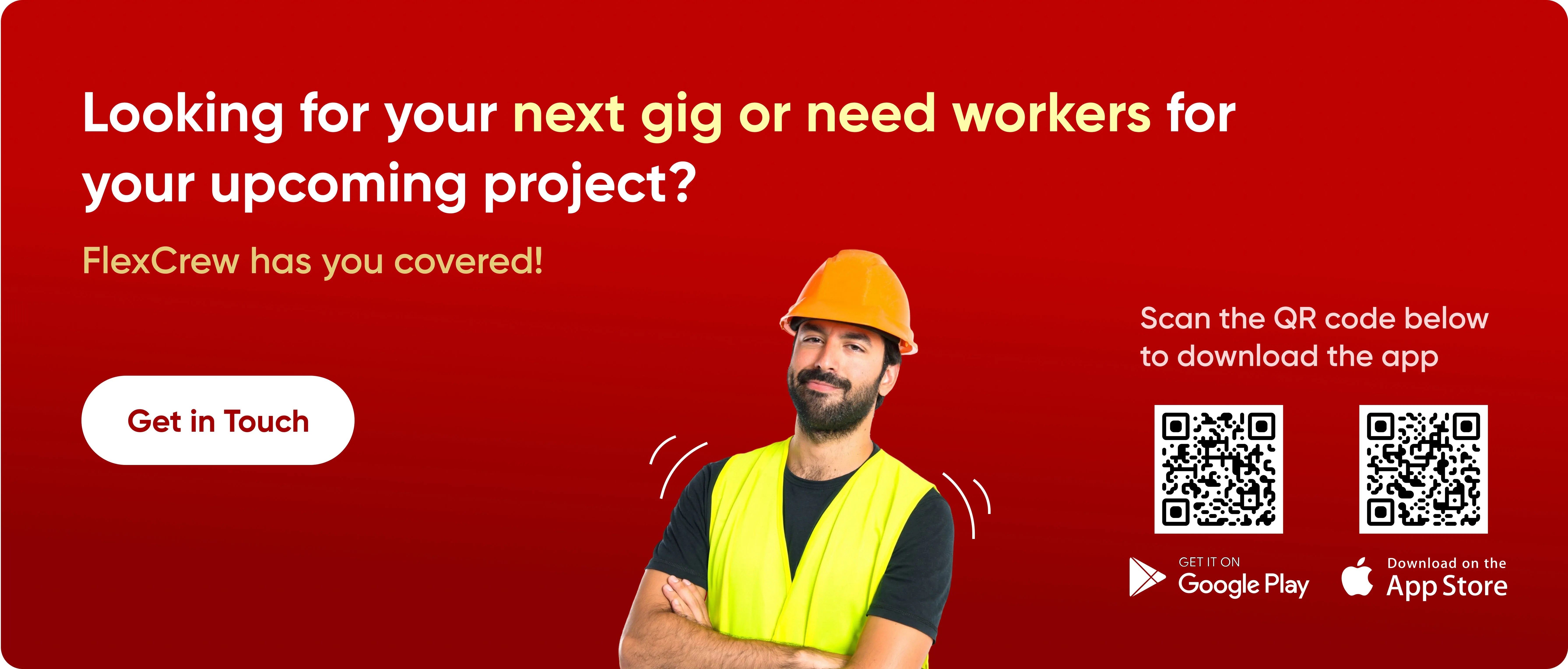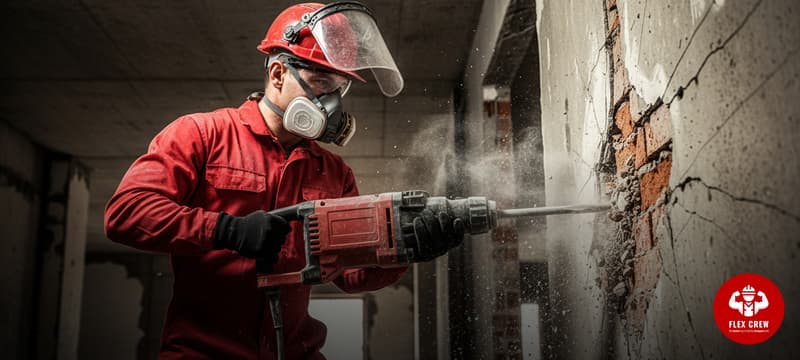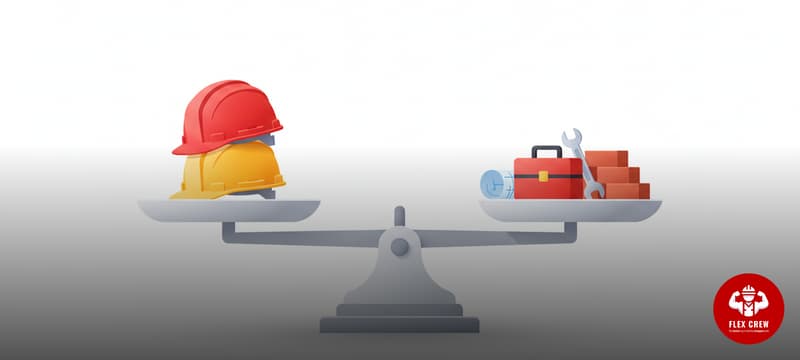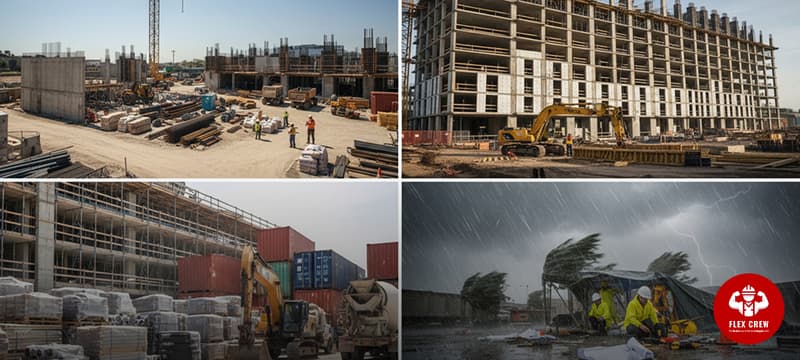Let's be honest – finding skilled construction workers right now feels impossible. You're competing for talent in the tightest labor market we've seen, with 546,000 open positions and nearly half the workforce heading toward retirement.
The Real Talk: If you're still posting jobs on Indeed and hoping for the best, you're already behind. Today's construction companies need smart, multi-channel strategies that actually connect with workers where they are.
Look, we get it. You've got projects lined up, deadlines breathing down your neck, and you can't find enough qualified workers to keep up. Sound familiar? You're definitely not alone. Every construction company in America is fighting the same battle right now.
Here's what's really happening out there: job applications dropped 40% between 2019 and 2020, and guess what? They still haven't bounced back. Meanwhile, you need 454,000 more workers just to meet this year's demand. It's not getting easier anytime soon.

Why Construction Recruitment Feels Like Mission Impossible
So why is this happening? Simple – perfect storm conditions. You've got nearly 400,000 skilled workers between 50-65 who are ready to hang up their hard hats. At the same time, kids coming out of high school are being pushed toward college instead of learning actual skills that pay well.
The result? A massive skills gap that's only getting wider. But here's the thing – while everyone's complaining about the problem, some companies are actually solving it. They're the ones using strategies that work in 2025, not 2015.
Eight Recruitment Strategies That Actually Get Results
Let's cut through the fluff and talk about what's really working out there.
1. Stop Being Invisible Online
Real talk – if your online presence sucks, you're invisible to good workers. They're checking you out before they even think about applying. Your website, your social media, even your Google reviews matter more than you think.
Start with your website. Does it look like it was built in 2010? Time for an upgrade. Show off your coolest projects, introduce your team, and for the love of all that's holy, make it mobile-friendly. Most workers are browsing jobs on their phones during lunch breaks.
Then hit social media hard. LinkedIn isn't just for office workers – skilled trades are on there too. Facebook and Instagram work great for showing the human side of your company. Post videos of your crew celebrating project completions, share photos from company barbecues, show that you're actual people, not just another faceless contractor.
2. Let Technology Do the Heavy Lifting
Here's something that might surprise you – AI isn't just for tech companies anymore. Smart construction companies are using technology to screen candidates faster, reduce bias, and find better matches.
Modern platforms like FlexCrew USA use algorithms that actually understand construction skills and match workers with the right projects. No more sifting through hundreds of resumes hoping to find someone who knows the difference between a Phillips head and a flathead.
Some companies are even using VR to give candidates virtual site tours. Sounds fancy, but it works. Workers can see exactly what they'd be doing before they show up, which means fewer surprises and less turnover.
3. Make Friends with Schools (Before Your Competitors Do)
This one's huge. While everyone's fighting over the same experienced workers, smart companies are building relationships with trade schools, community colleges, and even high schools.
Don't just show up once a year for a job fair. Become part of their program. Offer to guest lecture, donate equipment, sponsor competitions. When graduation comes around, guess who those students are going to call first?
And here's a pro tip – start your own apprenticeship program. Yeah, it takes longer, but companies with apprenticeships report 87% retention rates. That's way better than constantly replacing workers who jump ship for an extra dollar an hour.
4. Turn Your Workers Into Recruiters
Your best employees already know other good workers. It's that simple. But most companies don't make it easy for them to help.
Set up a real referral program with actual incentives. Cash bonuses work, but so does extra PTO or even something as simple as a good parking spot for the month. Make it easy to refer people with a simple app or online form.
Workers referred by your team tend to stick around longer and fit in better. It makes sense – they already know what they're getting into.
5. Look Where Others Aren't Looking
Everyone's fishing in the same pond. Time to find new water.
Military veterans are gold mines. They show up on time, follow safety protocols, and know how to work as a team. Plus, they're motivated to start new careers. Organizations like Hiring Our Heroes can connect you with quality candidates.
Women are seriously underrepresented in construction – only 10% of the workforce. But companies that actively recruit women report better safety records and higher profits. The talent is there; you just need to reach out.
Career changers from manufacturing, automotive, or other industries often have transferable skills. Someone who's worked in a factory understands safety protocols and equipment operation.

6. Pay Like You Mean It
This isn't 2010. You can't lowball people and expect them to stick around. Research what others are paying and match or beat it. Period.
But here's the thing – it's not just about the hourly rate. Workers care about benefits too. Health insurance, retirement matching, paid time off – these things matter. Some companies are offering signing bonuses, tool allowances, even gym memberships.
Figure out what your workers actually want and give it to them. It's cheaper than constantly recruiting replacements.
7. Safety Isn't Just a Buzzword
Good workers want to go home in one piece every day. Your safety record and culture can be a huge differentiator in recruitment.
Don't just talk about safety – prove it. Share your OSHA scores, highlight safety training programs, show photos of workers using proper PPE. Make it clear that safety comes first, not schedules or profits.
Also, invest in continuous training. Workers see training opportunities as valuable benefits that improve their long-term earning potential.
8. Speed Up Your Hiring Game
In today's market, slow hiring means no hiring. Good candidates have multiple options, and they're not waiting around for weeks to hear back from you.
Streamline everything. Cut unnecessary interview rounds, respond to applications within 24 hours, and give clear timelines. Use mobile-friendly applications and multiple ways to communicate.
Track how long your hiring process takes and constantly look for ways to speed it up without sacrificing quality.
Why Staffing Agencies Are Game Changers
Look, we know some contractors are hesitant about using staffing agencies. "They're too expensive," or "I want to hire my own people." We get it. But here's what's really happening.
Good staffing agencies like FlexCrew USA do the heavy lifting for you. They've already screened candidates, checked references, and verified skills. They handle payroll, benefits, and compliance headaches. Most importantly, they can scale your workforce up or down based on project needs.
Think about it – would you rather spend time posting jobs and interviewing candidates, or focus on running your projects? Smart contractors are using agencies as strategic partners, not just temporary solutions.
Dealing with Real-World Problems
Let's address the elephant in the room. Even with great strategies, you're still going to face challenges.
Can't find people with the right skills? Invest in training existing workers and partner with schools to develop the skills you need. Sometimes it's faster to train someone than to find someone.
People keep quitting? Look at your culture, compensation, and management. Exit interviews are gold mines for improvement ideas. Most people don't quit jobs – they quit managers.
Younger workers think construction is just hard labor? Show them the technology side. Modern construction uses drones, 3D modeling, robotics. It's not your grandfather's construction site anymore.
Working in the middle of nowhere? Offer housing assistance, travel allowances, or higher pay for remote work. Some workers actually prefer remote projects for the adventure and higher pay.
What's Coming Next
The construction industry is changing fast, and recruitment is changing with it. Here's what you should be watching:
Companies are focusing more on specific skills rather than years of experience. If someone can do the job, does it matter if they learned it in school or on YouTube?
Diversity is becoming a competitive advantage, not just a nice-to-have. Companies with diverse teams consistently outperform homogeneous ones.
Even traditionally on-site roles are finding ways to incorporate remote work. Project management, estimating, and planning can often be done from anywhere.
Your Questions, Answered
Q. What's the biggest recruitment mistake construction companies make?A. Thinking they can keep doing things the same way they did 10 years ago. The market has completely changed, and your strategies need to change too.
Q. How can small companies compete with big contractors for talent?
A. Focus on what you can offer that they can't – personal attention, faster advancement, variety of projects, flexibility. Not everything is about who pays the most.
Q. What works better – temporary or permanent hiring?
A. Depends on your projects. Temporary gives you flexibility for short-term needs. Permanent gives you consistency and team building. Many companies use a mix of both.
Q. How important is company culture in recruitment?
A. Huge. Workers talk, and word gets around fast about good and bad places to work. A positive culture attracts talent; a toxic one repels it.
Q. Should we hire people without experience?
A. Sometimes your best hires are people without bad habits from other companies. If they're motivated and trainable, they might be perfect for your team.
Q. How do we recruit in areas with no workers?
A. Get creative with incentives. Housing assistance, travel pay, sign-on bonuses. Sometimes you need to make it worth their while to relocate.
Q. What's the best recruiting platform for construction?
A. There's no single best platform. Use a mix – Indeed and LinkedIn for broad reach, specialized construction job boards for targeted candidates, and social media for employer branding.
Q. How can we improve our employer brand?
A. Show, don't tell. Share real stories from real employees. Let people see what it's actually like to work for you through photos, videos, and testimonials.
Q. Is recruitment getting harder or easier?
A. Honestly? It's getting harder in some ways because of the skills shortage, but easier in others because of better tools and strategies. Companies that adapt are doing fine.
Q. What's the ROI of good recruitment strategies?
A. Think about it – what does it cost when a project gets delayed because you're short-staffed? Good recruitment strategies pay for themselves many times over.
Bottom Line: Your Next Move
Here's the deal – construction recruitment isn't getting easier, but it's definitely getting more strategic. The companies that figure this out now are going to dominate for the next decade. The ones that keep doing things the old way? They'll be watching projects sit idle while their competitors build America's future.
FlexCrew USA gets it. We're not just another staffing agency throwing bodies at your projects. Our AI-powered platform actually understands construction, with a 2% no-show rate and 93% client satisfaction. We're connecting skilled workers with companies that treat them right.
Ready to stop struggling with recruitment and start building the team you actually need? The workers are out there – you just need to know how to find them.



